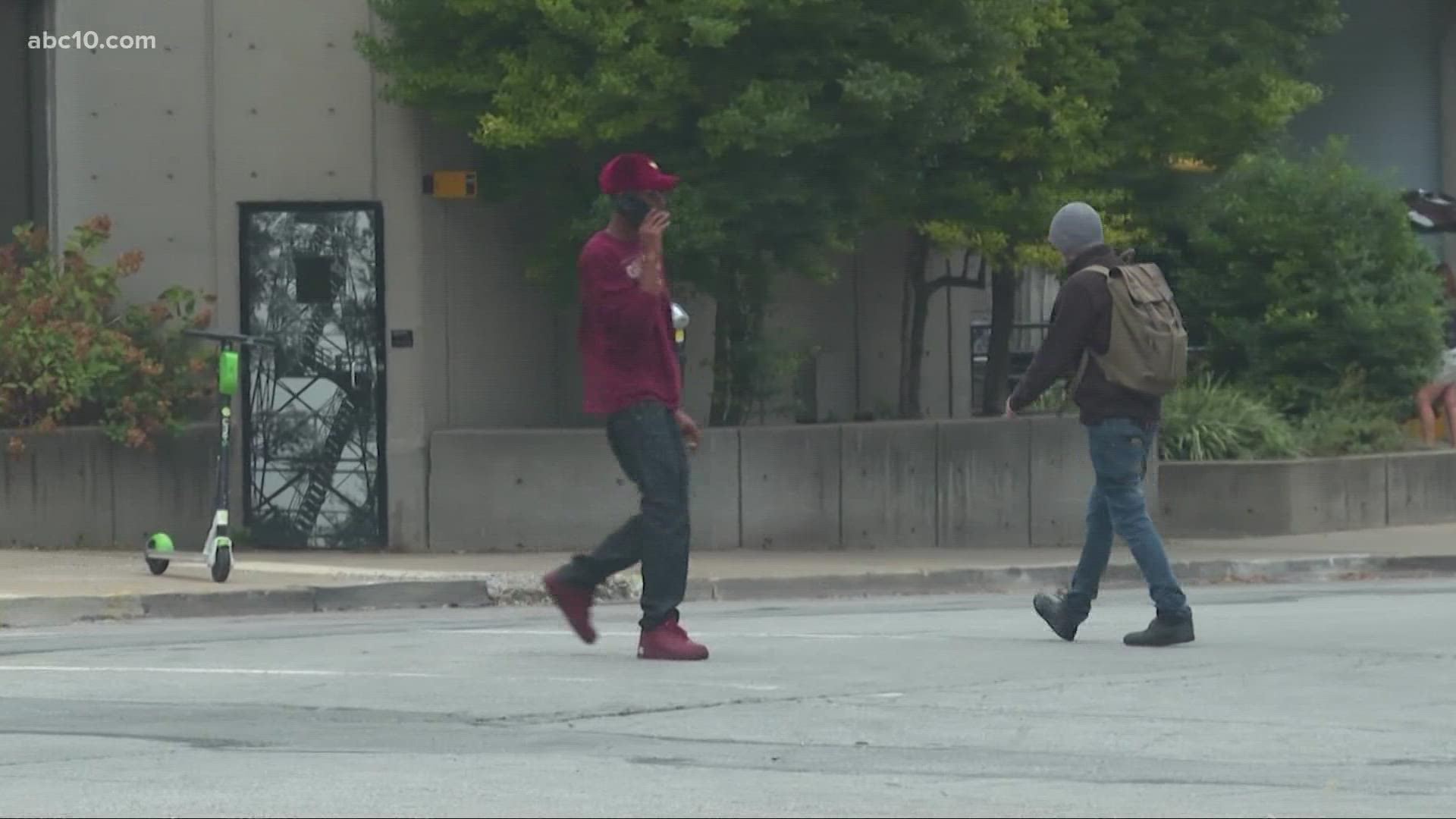SACRAMENTO, Calif. — A new bill aims to reduce the number of jaywalking infractions given, which disproportionately impact people of color. A similar bill that completely decriminalized jaywalking passed the legislature last year, but Governor Gavin Newsom didn’t sign it because he feared it would lead to more people being hit by cars.
The updated bill says an officer can only cite someone for jaywalking if there is an immediate threat of a collision. Otherwise, police should let people keep walking.
“Everybody has the freedom to walk across the street without being worried about being cited or being stopped,” said Democrat Assemblymember Phil Ting.
Ting said, in addition to the potential of hundreds of dollars in fines, cases can escalate.
“Sometimes, unfortunately, the situation can escalate and become deadly," he said. "So we really want to just make sure that, when there is an incident, that those incidents are for very serious issues.”
The new bill does two things: Legalizes jaywalking as long as it’s safe, and prevents police from using it as a pretext to stop Black and Brown people.
“We see that African Americans are five times more likely to get cited than other individuals,” Ting said.
In 2019, Sacramento Police issued 55 jaywalking infractions. Black people accounted for more than 40% of the citations but make up just 13% of the city’s population.
“African Americans in San Diego were 4.3 times more likely to be cited for jaywalking,” he said.
Stats from the Lawyers Committee On Civil Rights found that San Diego County had almost 35% of all non-traffic infractions in the state. Black adults are 5% of the San Diego population but received 21% of the infractions.
“We're asking law enforcement really, to spend their attention elsewhere on much more serious issues, violent crimes as well as property crimes that people are very upset about right now in California,” Ting said.
Ting said he worked with California Highway Patrol and the governor on his updated bill this time around.
In Newsom's rejection letter last year, Newsom said California had the highest pedestrian fatality rate and feared the bill would “potentially increase fatalities or serious injuries caused by pedestrians that enter our roadways at inappropriate locations.”
WATCH ALSO:

















